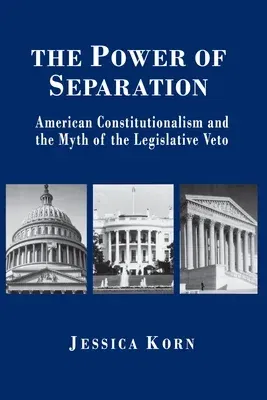Jessica Korn
(Author)The Power of Separation: American Constitutionalism and the Myth of the Legislative Veto (Revised)Paperback - Revised, 29 March 1998

Qty
1
Turbo
Ships in 2 - 3 days
In Stock
Free Delivery
Cash on Delivery
15 Days
Free Returns
Secure Checkout

Part of Series
Princeton Studies in American Politics: Historical, Internat
Part of Series
Princeton Studies in American Politics: Historical, International, and Comparative P... (Paperback)
Print Length
188 pages
Language
English
Publisher
Princeton University Press
Date Published
29 Mar 1998
ISBN-10
0691058563
ISBN-13
9780691058566
Description
Product Details
Author:
Book Edition:
Revised
Book Format:
Paperback
Country of Origin:
US
Date Published:
29 March 1998
Dimensions:
23.47 x
15.52 x
1.45 cm
ISBN-10:
0691058563
ISBN-13:
9780691058566
Language:
English
Location:
Princeton
Pages:
188
Publisher:
Series:
Weight:
303.91 gm